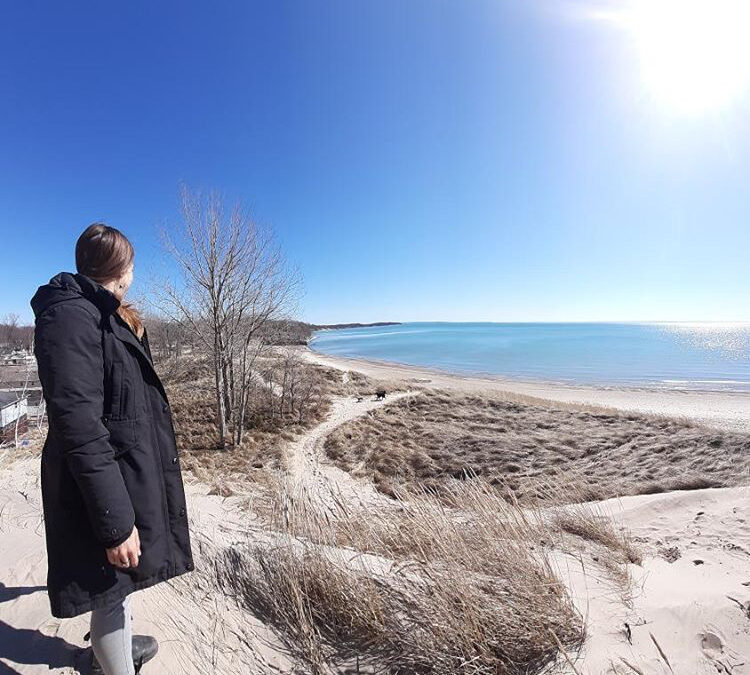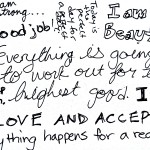“A human being can endure anything.
“As long as they see the end in sight.
“The problem with depression is, you can’t see the end.”
Depression is like a ditch. Sometimes you head into and get stuck, but you manage to wiggle out. Other times you’re in a major rut and can’t get out at all. In those cases you need to call someone.
It happened to me once. I was driving in the winter to a hiking spot and I thought that a flat-looking patch of snow was the side of the road and before you know it I’d driven into a ditch. I couldn’t get out. I tried gunning it, putting rocks under my tires, getting a friend to push.
Eventually I just had to call someone. Within a few minutes, a tow truck came. The man driving it unceremoniously and unemotionally told me to put the car in neutral. He hooked a giant chain to my bumper. He yanked me out of the ditch. And then he drove off.
Roadside assistance.
In my last post I said something akin to “health is not emotional”. It’s sometimes just an equation.
With patients I educate them on their prefrontal cortex, on brain inflammation, on Polyvagal Theory and the nervous system and how depression is a normal response of the nervous system to abnormal circumstances, and how to they can work with their body and environment to get the help they need to yank them out of the ditch.
But I also talk about the people around us. We need them. We need them to be our prefrontal cortexes (because when you’re depressed or anxious yours isn’t working at full capacity–you CAN’T just yank yourself out a ditch, you need a tow truck, a chain and an unceremonious dude who knows what to do).
You need a strategy. You need a hand. You need help.
Who’s your support team? Who are the people around you?
I talk to my patients about bringing their loves ones on board to help them set up systems to regulate their nervous systems, nourish their brains and bodies (don’t even think for a second that I didn’t have a snack to munch on while waiting for the two truck–this fact is not even metaphorical. You NEED a literal snack to fuel your brain), and reduce inflammation.
There is a theory of depression that it is an ADAPTIVE state meant to get us through a difficult time.
Famine.
Capture by a predator.
Infection or illness.
Isolation from the group.
These may have been the historical hunter-gatherer inputs that caused depression but now it seems that depression can be triggered anytime our bodies are in a perceived or real “stuck” state with no way out.
Many, if not most, or all, depressive episodes I’ve worked with follow a period of intense anxiety. Our body’s stress response burns out, we can no longer “get away from danger” and we shutdown and collapse.
We turn inwards. We immobilize. We ruminate (possibly as a way to THINK our way out of danger).
This is why the 2a serotonin receptors that encourage “active coping” or things like BDNF, which is involved in making new brain cells, have important roles in the treatment research for major depression.
I’ll bet you’ve been told you have a disease, though. Something incurable that you’ll deal with your whole life.
But what if, rather than a disease, depression is a STATE you visit, and sometimes get stuck in that follows anxiety, stress and certain triggers?
How might that change the way you see yourself and your mental health? How might that change the way you seek solutions to how you’re feeling?
“The Adaptive Rumination Hypothesis by Andrews and Thomson posits that depression is not a pathology but a set of useful complex thoughts and behaviours that enable troubled people to withdraw temporarily from the world, deliberate intensively about their social problems, and devise solutions.”
From the Psychiatric Times
The major problem with depression that keeps us stuck in the state is when we turn our rumination back on ourselves and engage in self criticism.
Support your mood from the gut up by Feeding Your Head.







